Professor Lai Quoc Khanh, Vice Rector of the University of Social Sciences and Humanities, Vietnam National University, Hanoi, stated that in recent years, Vietnam has been implementing many important policies aimed at administrative reform, streamlining the apparatus, and improving work efficiency within the state system. One of the key strategies in this process is downsizing the workforce, which has had a strong impact on the public sector workforce.
Public officials and civil servants leaving the state apparatus face significant challenges in transitioning to new careers and adapting to the private sector labor market. In this context, supporting workers in their career transitions effectively and sustainably becomes a crucial and urgent task.
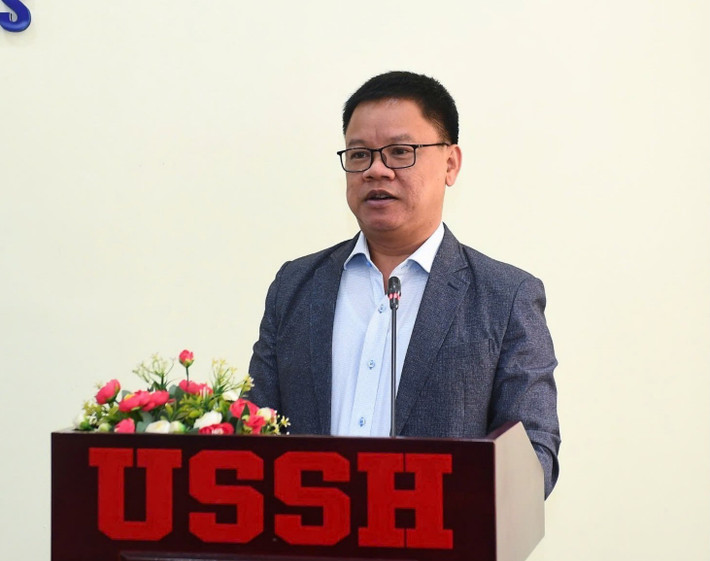
According to Professor Lai Quoc Khanh of the University of Social Sciences and Humanities, the results of the conference will be the starting point for the university in developing priority research programs and career transition support, contributing to enhancing the university's reputation and contributing to the management and development of society in the future.
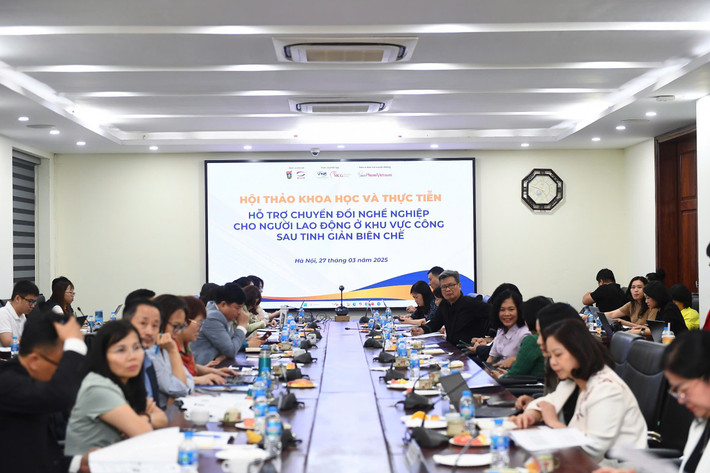
Speaking at the seminar, Associate Professor Dr. Le Thi Thanh Ha, Deputy Director of the Institute of Philosophy, Ho Chi Minh National Academy of Politics, acknowledged that Vietnam, after 40 years of reform, has achieved many successes in all fields. This provides a theoretical and practical foundation, and serves as preparation for entering a new era, an era of national progress.
However, practical experience in reform also shows that the deeper we go into the reform process, the more difficulties we face, including the major challenge of a cumbersome political system with overlapping functions and responsibilities among agencies, which not only leads to wasted resources but also gives rise to corruption and negative practices. Therefore, streamlining and cleaning up the political system is necessary.
Associate Professor Dr. Le Thi Thanh Ha emphasized that currently, Vietnam allocates nearly 70% of its budget to salaries, recurrent expenditures, and operational expenses, leaving only about 30% for development investment, security, and defense. The political system remains cumbersome and overlapping; some ministries and sectors still shoulder the responsibilities of local authorities, leading to a system of "request and grant," and giving rise to negative practices and corruption. The streamlining of personnel, linked to job positions, and the improvement of quality and restructuring of the civil servant workforce, has not been thorough. The campaign to streamline the apparatus, launched from the end of 2024 to the present, has received widespread support and participation from society.

“Streamlining the current organizational structure is not only a challenge for Vietnam but also a common trend in countries around the world. In recent years, developed countries have accelerated the reduction of personnel in the public administration system. Therefore, the aforementioned theory and practice urgently demand innovation and restructuring of the organizational apparatus to be lean, efficient, effective, and effective,” said Associate Professor Dr. Le Thi Thanh Ha.
According to the Deputy Director of the Institute of Philosophy, Ho Chi Minh National Academy of Politics, streamlining the apparatus and reducing the number of personnel will contribute to improving the quality of cadres. Streamlining the political system's apparatus will go hand in hand with screening and "retaining" capable cadres with good moral character, who constantly innovate their thinking and creativity in their work. Therefore, while the number of personnel will decrease, the quality will increase, and competitive pressure will motivate each individual to improve their professional skills, increase productivity, and improve work efficiency.
Furthermore, streamlining the organizational structure reduces the number of unnecessary personnel, thereby lowering costs for salaries, benefits, and facilities. The financial resources saved can then be invested in socio-economic development and addressing social welfare issues.
According to Mr. Kieu Cong Thuoc, Chairman of VNFUND, career transition for public sector workers is not simply about finding a new job, but also involves issues related to support policies, skills training, psychological adaptation, and the ability to integrate into the non-state labor market. While many countries around the world have effective support policies and models, this process in Vietnam still faces many challenges that need to be addressed.
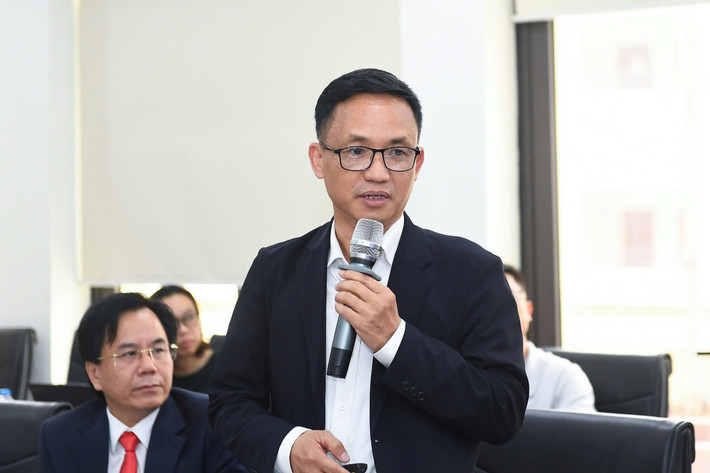
According to Mr. Thuoc, the main challenge in career transition in Vietnam today is the limitation of policies supporting career transition. Specifically, we currently lack mechanisms for financial support and specialized vocational training for public sector workers after mergers. The employment insurance system has not been highly effective for civil servants and public employees. Many localities do not have concrete plans for retraining or reassigning affected officials.
In addition, there are psychological and cultural challenges. Many officials accustomed to the public sector face difficulties when transitioning to the private sector. Many civil servants are used to stable salaries, while the private sector offers higher pressure. Another challenge lies in the internal job reassignment. Due to the mergers resulting in a surplus of personnel, many officials are transferred to positions that do not match their expertise, leading to decreased work efficiency. Some positions are completely eliminated, forcing employees to find new jobs or accept early retirement.
According to Master's degree holder Kieu Cong Thuoc, the key factors for success in supporting career transition include: early career guidance and in-depth counseling; support for training in new skills relevant to the labor market; financial policies supporting career transition (subsidies, preferential loans, insurance funds, etc.); and connections with the private sector to create new job opportunities.
According to Associate Professor Dr. Nguyen Thi Minh Nhan, Head of the Department of Science Management and External Relations at the University of Commerce, the recent revolution to streamline the administrative apparatus has been very decisive.
After phase one, the government currently has 14 ministries and 3 ministerial-level agencies. Phase two is underway, with plans to reduce provincial-level administrative units by 50%; reduce commune-level units by 60-70% (from 10,000 communes to 2,500 communes); eliminate district-level units, and transition to a two-tiered government model, reducing the number of provincial-level administrative units by 50% and eliminating the intermediate district level. According to the Ministry of Interior's projections, approximately 100,000 officials, civil servants, and employees will leave the public sector. This is a number that requires serious attention.
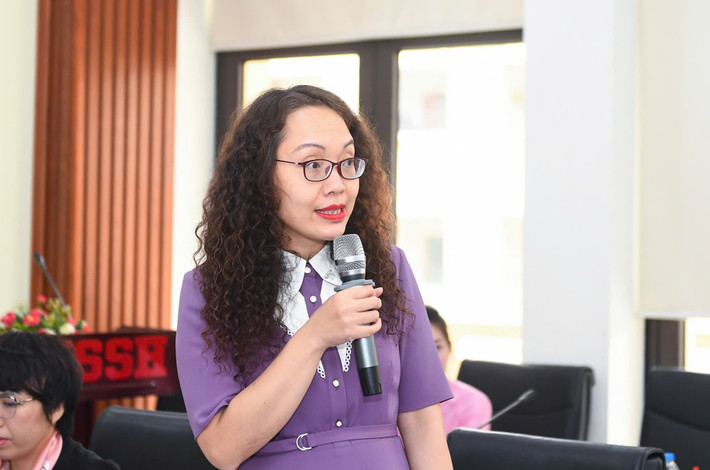
Associate Professor Dr. Nguyen Thi Minh Nhan cited the Navigos Group's 2025 Talent Guide survey, which shows that current labor market trends are situated within a context of dual impacts: the post-Covid-19 recovery phase, the digital transformation revolution influenced by the fourth industrial revolution, and the ongoing strong international integration despite numerous barriers. This context highlights two key manifestations of labor market changes. Firstly, professions related to artificial intelligence, data analytics, and renewable energy are experiencing rapid growth, creating a demand for labor aligned with these trends. Secondly, the trend towards sustainable employment development is also being emphasized in the policies of various countries, including Vietnam.
Currently, the skill sets that businesses value highly in candidates include: Problem-solving, Effective communication skills, Foreign languages, Analytical thinking, Collaboration skills, Adaptability to change, Creative thinking, Perseverance, flexibility and agility, and Technological awareness.
Associate Professor Dr. Nguyen Thi Minh Nhan observes that public sector employees who have undergone downsizing often possess management experience and work experience in a professional public sector environment; they have organizational and management skills, and the ability to solve problems systematically. Compared to the problem-solving skills that employers currently require, this is a strength of employees after leaving the public sector. Effective problem-solving and communication skills are also strengths of civil servants and public sector employees, thanks to their experience in providing public services to citizens and organizations.
However, other skills, especially foreign languages, also pose difficulties for workers leaving the public sector to enter the private sector. Regarding adaptability to change – a competency highly valued by businesses when recruiting candidates – Associate Professor Dr. Nguyen Thi Minh Nhan noted that those working in the public sector are often accustomed to a stable work environment. This also presents a challenge and pressure when they enter the private sector, where work pressure is higher.
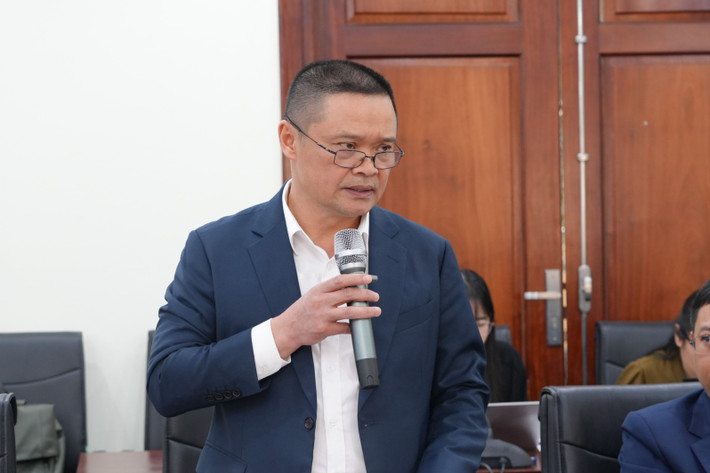
Sharing his personal career transformation story and the synergy within the ecosystem, Mr. Bach Ngoc Chien, General Director of VOVINAM Digital Company, said that the lean revolution is inevitable for development. This is an opportunity to retain and develop high-quality human resources within the state apparatus.
Mr. Bach Ngoc Chien suggested that a personnel evaluation system should be implemented within the state apparatus to encourage the contributions of high-quality human resources.
Regarding the issue of providing psychological support to workers coping with job transitions, Associate Professor Bui Thi Hong Thai, Director of the Center for Psychological and Social Research and Services, observed that, in reality, many public sector workers are experiencing crises when changing jobs, as they are seeking job stability and career advancement in a relatively secure environment.
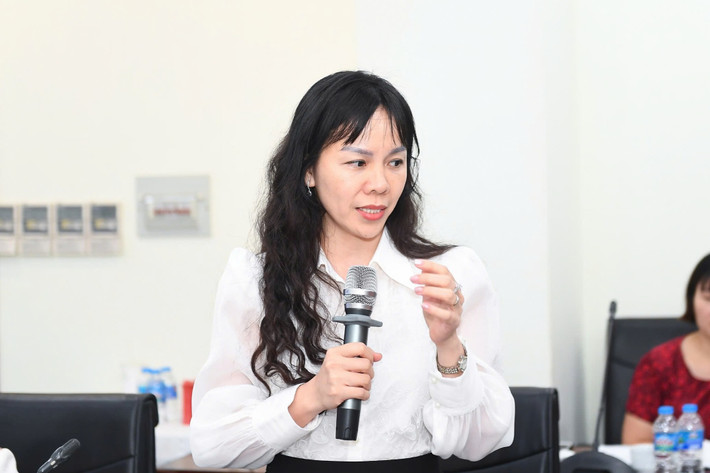
In reality, this isn't the first time employees have faced crises. Throughout a person's life, there are many periods of crisis when they encounter difficulties and hardships, and not everyone has the ability to remain confident. However, a lack of confidence during these times doesn't mean they are weak, incompetent, or unworthy of their position.
"From the perspective of a practicing psychologist, I believe this is the moment, the signal, that they need help," said Associate Professor Bui Thi Hong Thai.
Associate Professor Bui Thi Hong Thai analyzed that when change begins, many workers may feel anxious or shocked, finding it difficult to envision the future. This is because at this stage, workers lack the necessary information to predict upcoming changes or understand their role in the "new" organization. Some individuals may feel happy, realizing that the need for change is recognized and shared by others, leading to a sense of relief that something will change.
Many people will feel fear or intimidation. Fear is a natural human reaction to the potential personal impact of change. Some may deny it, acting as if the change hasn't happened. This is a coping strategy often likened to the "head in the sand" syndrome. Others may feel disillusioned, questioning the values, beliefs, and goals of the "new" organization. The potential risk is that employees may become demotivated, distracted, and increasingly dissatisfied. They may begin to withdraw, perhaps by "quietly quitting," complaining, or even resigning.
To care for the mental health of workers affected by mergers, transitions, or layoffs, Associate Professor Bui Thi Hong Thai suggests that career transition counseling should be based on the individual worker's abilities, personality, existing resources, and resources available from the organization or mobilized from third parties and the labor market. Simultaneously, workers should be guided to proactively seek and transition to jobs that suit their circumstances; and trained in proactive self-care skills through emotional management, positive thinking, and building a healthy lifestyle.
Associate Professor Bui Thi Hong Thai also proposed training in preventing psychological problems such as stress, anxiety, crises, and depression among workers through effective coping strategies. She also suggested providing psychological support/therapy for those experiencing stress, anxiety, or crises due to job loss or job changes.
People's Representatives Newspaper:Challenges in career transition for public sector workers after downsizing.
Author:People's Representatives Newspaper
Newer news
Older news